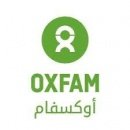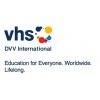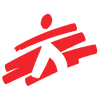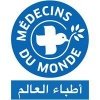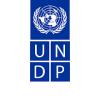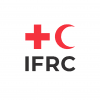Research on Gaza Movement Restrictions on People and Goods
Terms of Reference Research on Gaza Movement Restrictions on People and Goods
Timeframe: 18 July - 19 August 2021
Purpose: The research will provide a comprehensive overview of all movement restrictions on people and goods in three key sectors: 1) agriculture & agribusiness, 2) furniture, 3) ICT. The research will present all existing political barriers imposed by the Government of Israel, including those communicated and those implemented in practice, which hinder economic growth, specifically by highlighting these barriers across the value chain (from input to market) and per selected sectors. All political barriers are also required to be visually presented through a chosen commodity per sector.
Background
Israel’s separation and blockade policy has devastating implications for civilians in Gaza, limiting the import of essential goods, including materials necessary for reconstruction, shutting down internal trade and export to international markets and preventing Palestinians in Gaza from leaving to visit family, seek employment, or access health and education services in the West Bank and abroad. The detrimental impact of the blockade and suffering of the entire population of the Gaza Strip amounts to collective punishment and is clearly forbidden under international humanitarian law through Article 33 of the Fourth Geneva Convention.
A wide range of items are treated as “dual-use” by the Israeli authorities, meaning that they consider these items not to have an inherent civilian use. Over the years these restrictions have led to a severe collapse of systems and progressing de-development, and the crippling of different service sectors. Import and export restrictions severely limit the access to national and international markets leading to further weakening of many other sectors, such as farming, fishing, and industry, which has contributed to deepening the already severe unemployment and poverty rates.
Before the blockade (which started in 2007), 80% of processed food items made in the Gaza Strip used to be sold in Israel and the West Bank. Food products including date paste, cookies, and potato chips had been a significant part of the Gaza economy prior to the blockade. Today, Israel only allows for the export of eggplants and tomatoes from Gaza to the Israeli market, with requirements and procedures that reach the stage of incapacitation. Israel inexplicably bans the exit of processed foods from Gaza into Israel, and severely limits it to the West Bank and overseas. Limited access to construction materials since 2007 has delayed the construction, repair and upgrade of water and sanitation and other types of infrastructure to address rapid and projected population growth, availability and quality of water resources and the devastation caused by recurrent rounds of hostilities.
Research questions:
- What are the specific and detailed types of movement and access restrictions on the following sectors: 1) agriculture & agribusiness, 2) furniture and 3) ICT in terms of import, export, and trade within OPT?
- What are the specific and detailed types of movement and access restrictions on the selected commodities per sector? Detailed examples with figures, sample evidence, statistics are needed.
- What is the overall cost of the restrictions on the specific sectors? What would the specific sectors look like without restrictions?
- What is the economic loss (quantified in EUR and USD) of selected products from Gaza and what it means for the economy in the Strip compared to the West Bank and Israel?
- What are the figures of export / trade within OPT for the abovementioned sectors over the past decade? A clear analysis must be provided to describe trends.
- What are the economic consequences of the on-going Israeli imposed movement and access restrictions on people and goods on the overall economy of the Gaza Strip? (include 3 case studies – one per sector)
- What are the consequences of the on-going Israeli imposed movement and access restrictions on people and goods on the abovementioned sectors?
- What are the most ridiculous objects and materials that are on the dual-list and cannot enter Gaza? This doesn’t need to be a comprehensive list; rather based on the experience of the interviewed people
- What is the economic impact of the 11-day aggression in 2021 on the Gaza Strip and specifically on the following sectors: 1) agriculture & agribusiness, 2) furniture and 3) ICT (brief overview for introduction only)
- What are specific recommendations to the Palestinian Authority, to Israel and to the international community?
Methodology
The consultant will prepare a workplan and present a list of organizations to be consulted/interviewed (interviewees include to the minimum UNOPS/UNCTAD, FAO, Gisha, Paltrade, Omar Shaban, UAWC, Oxfam beneficiaries, Oxfam Economic Justice staff, representative bodies, and unions within the abovementioned sectors).
The following methodology will be applied as part of carrying out the research, the full methodology will be presented by the consultant as part of his/her application for this assignment:
- Reviewing all existing related documents and studies; including any available data and maps (preference to use UN stats on trade volumes)
- Interviewing people we work with, Oxfam staff, partners, UN agencies, (I)NGOs, and PA governmental offices, and in order to acquire new facts that can be presented on movement and access restrictions in the four selected sectors
- Validation workshop with interviewed stakeholders
Timetable
18 July - 5 August : Conduct research and production of first draft research paper (not more than 20 pages)
5 August : Sharing first draft research paper with Oxfam
12 Aug: Oxfam shares feedback in return
12 - 22 Aug : Production of second and final research paper
22 Aug: Final research paper shared with Oxfam
Deliverables by consultant (all performed by the hired consultant)
- Final approved movement and access restrictions research paper
- Three case studies (one per sector)
EVALUATION OF PROPOSALS AND SELECTION PROCESS
To select the consultant in charge of conducting the study, Oxfam expects to receive clear technical and financial proposals. 80% of weight will be given to technical proposal and 20% of weight will be given to financial proposal. Potential and interested firms/individuals are required to submit a comprehensive proposal describing / articulating the work requirements outlined in this ToR. All proposals will be evaluated based on internally agreed criteria as follows:
(Weight for each criterion given in percentages)
- Specific and extensive expertise in writing papers and analysis on issues related to economics and business (10%);
- Specific and extensive expertise in collecting quantitative and qualitative data through research and interviews (10%);
- Proposed team / personnel which includes composition of the team and their educational qualification and experiences. With equal competences, gender-balanced teams will be favourable with an expertise in measuring gender-related indictors and change (15%);
- Methodology and work plan which includes approach / evaluation design, sampling methodology, data collection methodology, data analysis, work plan etc. (35%);
- Quality of presentation of proposal (10%).
- Financial proposal (20%).
The applicant must score minimum of 50% in the technical evaluation to be eligible for financial evaluation.
Submission Process:
Please submit the technical and financial offer with all requested documents by email by 25th July 2021 to the email address: [email protected] quoting the reference code in the subject line of your email.
Period of Validity: the technical and financial offers shall be valid for a period of maximum 60 days, starting from the submission date. All the presented prices should not be including VAT as the project is VAT exempted , the supplier should be able to present a valid deduction at source , if the supplier could not provide a valid deduction at source a certain amount will be deducted from the fees as taxes




